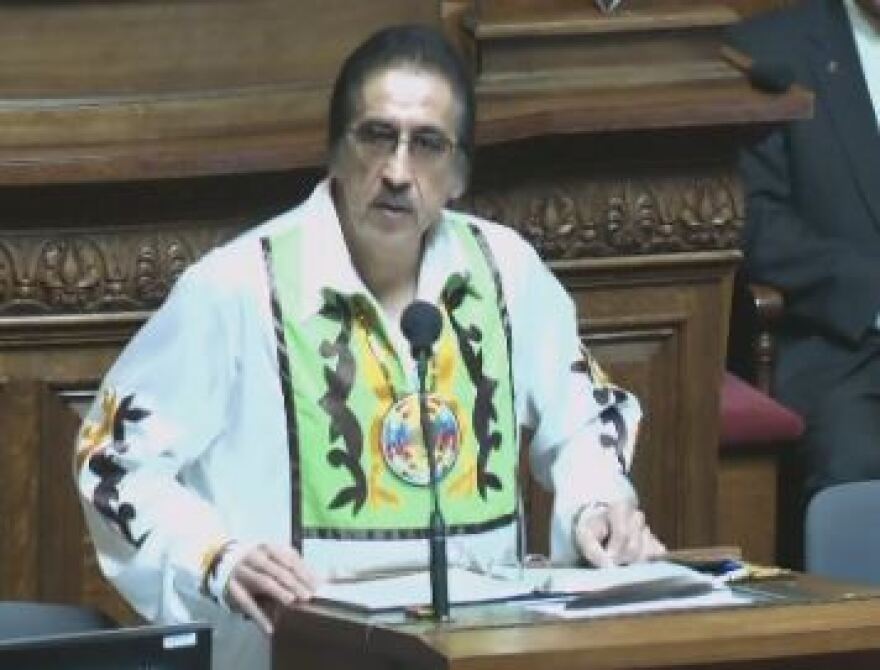Native Americans in Wisconsin had the opportunity to share their concerns with state lawmakers Tuesday. The occasion was the annual State of the Tribes Address at the Capitol.
The speaker, former Menominee chairman Gary Besaw, focused on issues important to the different nations, such as preserving wetlands and limiting mining, but he also urged more communication between the state and the tribes.

Luke Besaw opened the State of the Tribes Address with a prayer in his native language. He’s a member of the Menominee Indian Tribe of Wisconsin -- and he's the son of Gary Besaw.
The elder Besaw first warmed the crowd with jokes, acknowledging that the number one fear of some people is not death, but public speaking.
As he grew serious, Besaw shared this assessment of the state's native nations: “There are many things that have worked against Native Americans, but we’re still here today. We’re still fighting and we’re still strong."
"There are many things that have worked against Native Americans, but we're still here today. We're still fighting and we're still strong."
Besaw told lawmakers that the annual speech is important because it gives tribes the chance to remind people that Native Americans are "on the same team" as other Wisconsinites. He said often that message is lost because society still portrays Native Americans in a one-dimensional, stereotypical fashion- for instance, in the insensitive team names and mascots that are still used by some schools.
Besaw said not only do the race-based names and symbols hurt Native American children, “...but these stereotypes, they propagate those stereotypes that we’re in the past when we see those, and our children have to endure with those. Help us out.”
Inaccurate portrayals even can be found in textbook, he said, which gives the impression that Native Americans are a thing of the past in Wisconsin.

“I had a class here at the University of Wisconsin in the 1990s, and it was asked to critically review all native references in the then current mainstream social studies text and what I found was over 90% of the references to us, to Native Americans, were only in the past tense. One, Native Americans lived at one time in Wisconsin. Native Americans had contributed greatly. And the third, the final. Native Americans were once great warriors.”
Besaw said it's important to remind people that native nations are still contributing to society today, and he reminded lawmakers that the tribes should have a place in state politics.
He urged legislators to work with native nations on laws that impact them and asked for a “heads up” when lawmakers propose policies that directly affect the tribes.
Audio and photos courtesy of WisconsinEye.




